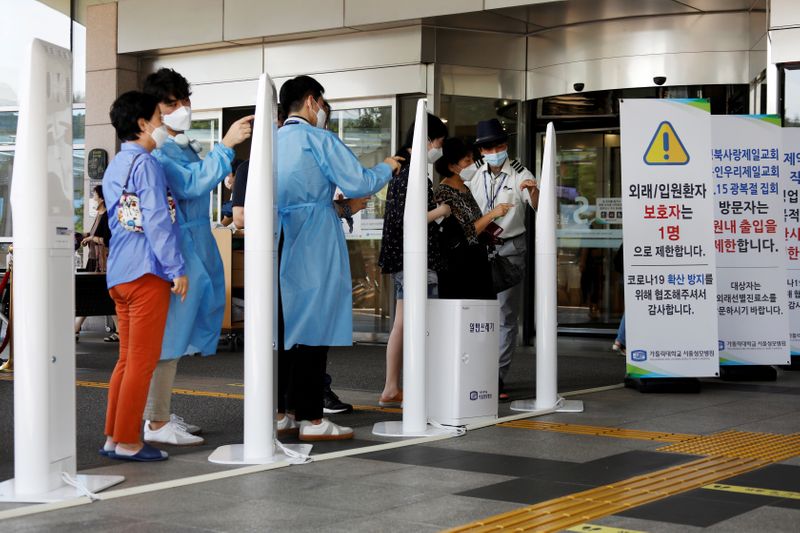By Hyonhee Shin
SEOUL (Reuters) - South Korean doctors have agreed to end a two-week strike which has hindered efforts to curb a new wave of coronavirus infections, Prime Minister Chung Sye-kyun said on Friday, after overnight talks over the government's medical reform plans.
Some 16,000 intern and resident doctors have been on strike since Aug. 21. Trainee doctors are the backbone of healthcare services in emergency rooms and intensive care units, and volunteer at temporary testing stations.
The doctors oppose the reform proposals, which include increasing the number of doctors, building public medical schools, allowing state insurance to cover more oriental medicine, and expanding telemedicine.
The government says the initiatives could help better deal with health crises like the coronavirus, but the doctors argued it would only deepen the concentration of physicians in cities without improving poor medical infrastructure and work conditions in rural provinces.
Chung said the government, the ruling party and the Korean Medical Association that represents the industry have reached a "dramatic compromise" after lengthy negotiations.
"I expect they will sign an agreement today and the doctors will return to their places soon," Chung told a meeting.
A Korean Medical Association spokesman said an event to sign an agreement was expected but nothing was final until it actually takes place.
On Friday, South Korea reported 198 new cases, raising the total to 20,842 with 331 deaths.
The Health Ministry has agreed to halt its push to boost the number of medical students and open new schools and will revisit the issues with the industry after the coronavirus outbreak has stabilised, the Yonhap news agency reported, citing unnamed ruling party officials.
The ministry had issued a back-to-work order for the doctors and filed a police complaint against several leaders, saying the strike caused disruptions at clinics and worsened bed shortages even as it battles with a resurgence in COVID-19 cases.
